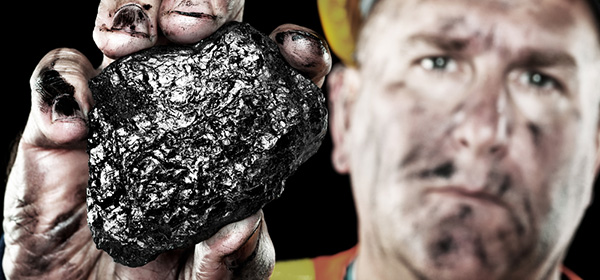According to a recent Oxfam report, Tony Abbott’s claim that coal is “good for humanity” is out of step with how the rest of the world sees the fossil fuel.
The Powering Up Against Poverty study states that the international shift away from fossil fuels is happening faster than most would have predicted. It has also found that coal power could be responsible for numerous health problems – even premature deaths – and is ineffective in delivering electricity to the world’s poorest communities.
The report also shows that coal is the single biggest driver of climate change.
One in seven people of the world’s population are without power. The Prime Minister believes that fossil fuels will not only be the power source of choice for the next few decades, but also that it will raise living standards in developing nations whilst bolstering the Australian economy.
Oxfam disagrees. The author of the report, Dr Simon Bradshaw is concerned about Mr Abbott’s “myopic focus” on the coal industry.
“Coal is the single biggest contributor to climate change, the impacts of which are most felt by poorer people through floods, drought, cyclones and changes to food patterns,” he said. “We can clearly see in rural areas, and even rapidly growing urban populations, that renewable energy is a much more affordable and healthy solution for developing countries than coal.”
It’s quicker to install local solar panels than build coal plants, which means that renewable energy is actually a cheaper option for powering rural and remote areas.
Backing up the report’s findings that coal is detrimental to the health of the world community, the UK medical journal Lancet has also conducted studies of its own, and found that shifting to renewable energy could prevent over seven million deaths a year due to air pollution.
The same study also found that coal could have “potentially catastrophic” global effects through climate change, which will cause floods, drought, extreme weather events, air pollution and the spread of disease. According to the World Health Organisation (WHO), climate change will cause around 250,000 deaths a year between 2030 and 2050.
The Oxfam report shows that global investment in renewables actually surpassed fossil fuels in 2011. It’s estimated that US$3.7 trillion will be invested globally in solar technology alone over the next 25 years.
Even China, Australia’s biggest coal export market, reduced its coal consumption by 2.9 per cent last year and spent US$83.3 billion on renewable energy projects in 2014. Another major market, India, has also set its own target of 175GW of energy to be derived from solar systems by 2022.
Last week, Labor announced that by 2030 it would aim for Australia to derive up to 50 per cent of its electricity supply from renewables – a goal Mr Abbott called “bizarre” because it will cost Australia $60 billion to achieve. But the International Monetary Fund (IMF) predicts that Australians will actually subsidise fossil fuel production by around $41 billion in 2015 alone, which equates to around two per cent of Australia’s GDP.
The IMF also revealed that, globally, we are supporting fossil fuels at a rate of $10 million per minute – which is more than the world spends on healthcare.
Read the Oxfam report.
Read more at The Guardian
Read more at The Sydney Morning Herald
Opinion: Gambling with your future
With all these statistics, reports and studies showing that renewable energy is the way of the future, surely it’s time Tony Abbott ended his love affair with coal. And even though the Oxfam report is dealing specifically with powering remote global communities, the trend is indicative of what is to come once renewable energy becomes even more affordable across the board.
Even two of our biggest export markets are seeing the light – light that is increasingly being powered by renewable energy. Yet Mr Abbott remains attached to the notion that coal power is still the way of the future.
The Oxfam report shows that global investment in renewables has surpassed fossil fuel investment. And with the cost of renewables dropping year-by-year, this trend will no doubt continue.
But although Mr Abbott’s attitude towards renewable energy is out of step with the rest of the world, his is not the only opinion that should be worrying to many retirees.
Speaking as chair of the Asset Owners Disclosure Project in October last year, former Liberal leader Dr John Hewson claimed that the world’s top 1000 pension funds invest around 55 per cent of their money in fossil fuel industries, and just two per cent in renewable industries.
That 55 per cent equates to $US41 trillion invested in an industry that could be superseded in the next two decades. This bet against climate change jeopardises the nest eggs and investments of many current and future retirees. Surely it’s time the global banks and pension funds start taking studies such as those conducted by Oxfam and the IMF a little more seriously.
After all, they’re gambling with your money and taking a risk on your future. They’re betting against a huge proportion of experts who say that climate change is a very real threat. Is it really a chance worth taking?
What do you think? Do you still feel that coal is the way of the future? Do you think it’s time the Government and global banks started to ‘hedge their bets’ on the possibility of climate change? Do you worry that your future finances could be affected by the lack of attention paid to the onset of climate change? Would you like to see Australia investing more in renewable energy?

